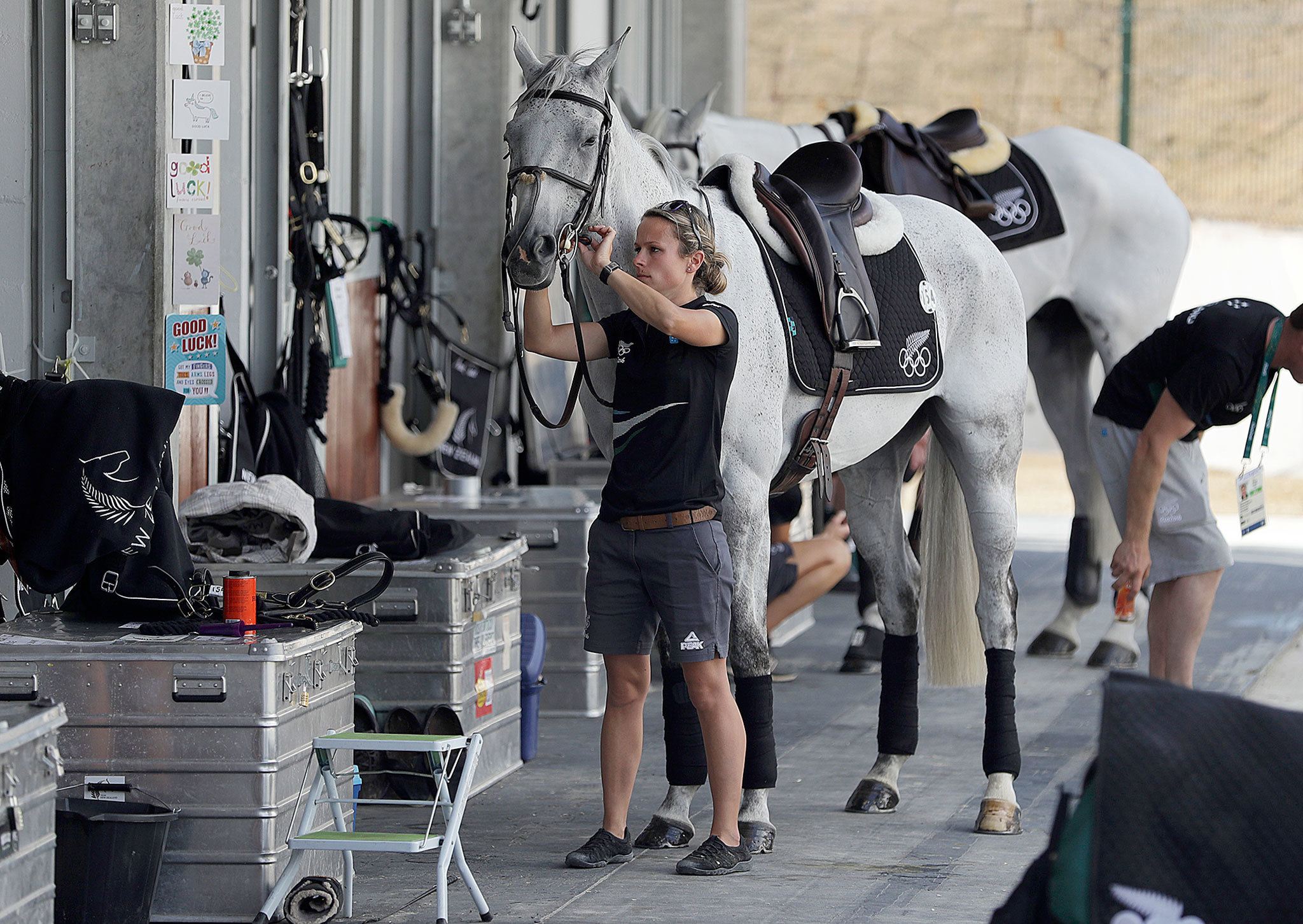By Justin Bachman, Bloomberg
Some Olympic athletes seem to be super-human, while others aren’t human at all. In Rio de Janeiro this week, more than 300 horses are arriving to compete in games that have provided a globe-spanning challenge for the world’s logistics and freight industries.
The 2016 games will involve roughly 30 million items, everything from condoms to firearms, with most marshaled from around the world and sent to Brazil on 6,000 cargo containers arriving by sea, air, and ground. About 70 percent of the imports came via container ship and 25 percent by air, with the rest traveling on trucks, said Fernando Cotrim, logistics director for the Rio games. From China, for example, came the 40,000 beds and 40,000 mattresses for an Olympics Village that has already drawn complaints from Australian competitors about the plumbing, and the smell.
But mattresses are easy. Some deliveries are more delicate than others. Safe horse transport (for equestrian dressage, eventing and jumping competitions) is one of a trio of security challenges confronting organizers and the logistics companies, Cotrim said.
Another is the firearms used for shooting events. Guns that clear customs are delivered to the Olympic Shooting Center and placed in the armory, where athletes check them out for training and competition, said Tabata Villas Boas, international logistics specialist for the local organizing committee. Lastly, athletes’ fluid samples used for doping tests require heavy security protocols, especially given allegations regarding the Russian team in the runup to the games.
But it’s the horses that really require the greatest logistical lift, literally and figuratively. The first of a dozen horse-transport flights by Emirates SkyCargo left London’s Stansted Airport on July 29 for the almost 12-hour flight to Rio. Brazil-bound horses are also being flown from Liege, Belgium, Miami, and New York City. The last of the 310 horses flying to Rio, including reserve animals, will depart Sunday.
Rio’s international airport, known as Galeão, has invested 2 billion reais ($628 million) since August 2014 to improve infrastructure. That includes, for example, 1 million reais for a ramp to connect horses with trucks to transport them to the competition area.
And just as passenger carriers focus their fanciest foods, drinks, and service on high-value customers, so too do freight and logistics specialists when handling their high-value cargo.
“You’ve got to provide the best conditions for your [animal] athletes,” said Martin Atock, managing director of Peden Bloodstock, a German company that has handled Olympics horse transport since the 1976 Montreal games. “We’re delivering horses in peak competition fitness, and we can only do that if we offer optimal conditions.”
Each of the Boeing 777 freighters taking the horses carries 11 grooms and veterinarians. Each flight is required to have at least one veterinarian on board. The Emirates jets are loaded with stalls that offer the world’s top athletic horses space to move, and each flight is scheduled to arrive at 11 p.m., to minimize unloading congestion. Peden began its Rio 2016 preparations well over a year ago.
The Olympics logistics staff has sorted the games’ materiel into three broad categories: sporting equipment for the competitions, technology, and then the large mass of mundane items needed to pull off the 16-day event: Furniture and basic fixtures for venues. Of the latter category, about 70 percent were imported, Cotrim said. Omega, the official timekeeper, had 450 tons of items to arrange, including 124 miles of cable and 414 scoreboards for events and the public.
Brazil approved legislation last year that eases entry for all equipment related to Olympics competition by simplifying documentation and giving full exemption from taxes, Cotrim said. That means gear can pass through customs as fast as the same day, he said.
That’s a stark contrast with Brazil’s traditionally sticky customs process; in Rio, complying with documentation for importing goods usually takes 146 hours, according to the World Bank’s “Doing Business” report. That compares with an average of 93 hours in the Latin America and Caribbean region and four hours in the wealthier nations of the Organisation for Economic Cooperation & Development.
Two years ago, the Brazilian who would later become the 2015 world surf champion had the boards he used in competitions seized at Rio’s airport for refusing to pay taxes. The athlete, Adriano de Souza, went on to lose while using backup boards at the contest.
The biggest hurdles in gathering all the goods have been “problems mainly with paperwork,” Cotrim said. “It’s actually very surprising because we were expecting problems, but we are working very well with the authorities and with the teams,” he said.
Talk to us
> Give us your news tips.
> Send us a letter to the editor.
> More Herald contact information.

























